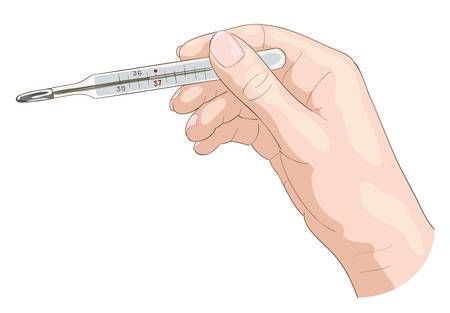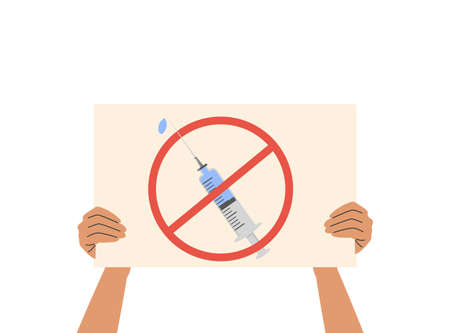Understanding Common Vaccine Side Effects
Vaccinations are a crucial part of keeping our families healthy, especially in India where we face many infectious diseases. As parents, especially as fathers actively involved in our childrens health, it’s natural to be concerned about side effects after immunisation. Most vaccines cause only mild and temporary reactions. Common side effects include a slight fever, mild swelling or redness at the injection site, and sometimes tiredness or irritability in children. For example, after the DPT (Diphtheria, Pertussis, Tetanus) vaccine, your child might develop a low-grade fever or experience soreness on the thigh where the injection was given. Similarly, the rotavirus vaccine might cause mild diarrhoea for a day or two. These symptoms are usually short-lived and indicate that the body is building protection against diseases. Indian families often use home remedies like applying a cool cloth to reduce swelling or giving paracetamol syrup for fever, as advised by doctors. Understanding these typical reactions helps us stay calm and provide comfort to our children during their vaccination journey.
Home Remedies and Self-Care
When your child experiences mild side effects after vaccination, there is no need to panic. As Indian parents, we are blessed with several time-tested home remedies that can help our children feel more comfortable. Below are some simple tips and traditional practices using ingredients commonly found in Indian households:
Simple Home Care Tips
- Tender Coconut Water: If your child has a mild fever or feels tired, offer tender coconut water. It helps keep them hydrated and cools the body naturally.
- Haldi Doodh (Turmeric Milk): For minor aches or soreness at the injection site, a warm glass of turmeric milk can provide comfort due to its natural anti-inflammatory properties.
- Cool Compress: Use a clean cotton cloth dipped in cool water and place it gently on the injection area for 10-15 minutes. This can reduce swelling and pain.
- Cumin (Jeera) Water: If your child has mild nausea or stomach discomfort, jeera water can soothe their tummy and aid digestion.
Traditional Practices from Indian Homes
| Side Effect | Traditional Remedy |
|---|---|
| Mild Fever | Lukewarm sponge bath, light khichdi, and rest in a well-ventilated room |
| Pain/Redness at Injection Site | A gentle massage around (not on) the area with warm mustard oil |
| Mild Headache | Tulsi tea or gentle forehead rub with eucalyptus oil (avoid strong balms for young children) |
Important Reminders for Parents
- Keep your child’s surroundings clean and calm; avoid sending them to school if they are feeling unwell after vaccination.
- Avoid giving strong medications or antibiotics without consulting your doctor.
- If your child develops high fever, continuous vomiting, severe pain, or allergic reactions like rashes or breathing difficulty, do not rely only on home remedies—contact your doctor immediately.
This family-first approach allows us to care for our children using both modern medicine and the wisdom passed down from our elders. Always monitor your childs symptoms closely and trust your instincts as a parent when deciding if medical attention is needed.

3. Recognising Unusual Symptoms
After your child receives a vaccine in India, it is natural to observe some mild reactions like slight fever, swelling at the injection site, or tiredness. These are generally expected and are signs that the body is building protection. However, as a parent, it is important to know how to tell the difference between these common side effects and more serious symptoms that require immediate medical attention.
Understanding Normal Reactions
Most Indian children will experience only minor discomfort after vaccination. Common side effects may include:
- Mild fever for one or two days
- Redness or swelling at the injection spot
- Irritability or fussiness
- Slight pain when touching the arm or leg where the vaccine was given
When to Be Concerned
If you notice any of the following uncommon symptoms, it’s time to consult your doctor right away:
- High fever (above 102°F or 39°C) that doesn’t come down with paracetamol
- Severe swelling or redness spreading far from the injection site
- Persistent crying for more than three hours, especially in infants
- Breathing difficulties, wheezing, or swelling of face/lips (signs of allergic reaction)
- Fits (seizures) or sudden loss of consciousness
Indian Context: Local Practices and Beliefs
In Indian households, it is common for elders to suggest home remedies like applying haldi (turmeric) paste on swelling. While these traditional methods may offer comfort for minor issues, they should not replace medical advice if serious symptoms appear. Always trust your instincts as a parent and seek help from your local paediatrician or government health centre if you feel something is not right.
4. When to Contact Your Doctor
As Indian parents, your child’s health and safety always come first, especially after a vaccination. While most side effects are mild and temporary, it is important to know when you should reach out to your doctor or visit your local clinic. Recognising the signs early can help prevent complications and give you peace of mind.
Signs That Need Medical Attention
If you notice any of the following symptoms in your child after vaccination, it’s best to consult your doctor or nearest healthcare centre immediately:
| Symptom | Description |
|---|---|
| High Fever | If your child’s temperature goes above 102°F (39°C) and does not come down with paracetamol or persists for more than 48 hours. |
| Persistent Vomiting or Diarrhoea | Vomiting that doesn’t stop or frequent loose motions leading to dehydration. |
| Severe Allergic Reactions | Difficulty in breathing, swelling of face or lips, rashes all over the body, or sudden weakness. |
| Unusual Drowsiness or Unresponsiveness | If your child is excessively sleepy, difficult to wake up, or not responding as usual. |
| Continuous Crying | Crying that lasts for more than 3 hours non-stop and cannot be comforted. |
Indian Context: Where to Seek Help?
If you are living in urban areas like Mumbai, Delhi, Bengaluru, or Chennai, you can visit your family paediatrician or a nearby private hospital. In rural areas, approach your local Primary Health Centre (PHC), Anganwadi worker, or Accredited Social Health Activist (ASHA) for immediate guidance.
What Should You Bring Along?
When visiting the doctor or clinic, carry your child’s vaccination card and note down the time and nature of symptoms. This helps healthcare providers give accurate treatment quickly. Never hesitate to ask questions – Indian doctors are used to concerned parents and will guide you patiently.
5. Cultural Considerations and Community Support
In India, cultural beliefs and traditions play a significant role in shaping attitudes towards vaccination. Many families rely on the advice of elders, community leaders, and even local healers when it comes to health decisions. It is common for myths and misconceptions about vaccine side effects to spread through word of mouth or social media, such as fears of infertility, long-term illness, or cultural taboos related to certain vaccines. As a parent, especially from a father’s perspective, it is important to address these concerns openly within your family and community.
Addressing Myths and Concerns
Some common myths include the belief that vaccines cause severe lifelong side effects or are not suitable for certain castes or communities. These ideas are not based on scientific evidence. To ensure your family’s safety, always seek guidance from reliable sources. Trusted local doctors, accredited community health workers (like ASHAs), and government health centres are equipped with accurate information about vaccine safety and side effects.
The Role of Family Elders and Community Leaders
In many Indian households, elders have a strong influence over health-related decisions. Fathers can encourage open conversations at home by involving elders in discussions about the importance of vaccination and sharing evidence-based information. When respected figures in the community support vaccines, others are more likely to follow their example.
Seeking Guidance from Trusted Sources
If you have concerns about side effects after vaccination—whether mild fever, soreness, or something unusual—do not hesitate to consult your local doctor or healthcare worker. Government-run helplines and local clinics can provide reassurance and medical advice tailored to your child’s needs. Remember, timely medical attention can prevent complications and keep your family safe.
In summary, combining traditional wisdom with modern medical advice strengthens your family’s health decisions. By addressing myths together and relying on trusted sources, fathers and families in India can confidently navigate vaccination side effects and know when it is necessary to contact a doctor.
6. Preparing for Your Child’s Vaccination
Practical Tips for Indian Parents
Vaccination day can be stressful, especially for first-time parents. Proper preparation will help ensure a smooth experience and reduce anxiety for both you and your child. Here are some practical tips tailored for Indian families:
What to Bring to the Appointment
- Vaccination Card: Always carry your child’s immunisation record. This helps the doctor update information and plan future doses.
- ID Proof: Some clinics or hospitals may require identification, especially in urban settings or government centres.
- Comfort Items: Bring your child’s favourite toy, blanket, or even a sweet treat (like a small piece of jaggery) to comfort them after the shot.
- Extra Clothes and Diapers: For infants and toddlers, always keep an extra set of clothes and diapers handy in case of spills or accidents.
Questions to Ask the Doctor
- Which vaccine is being administered today? Are there any specific side effects I should watch out for?
- What should I do if my child develops a fever or swelling at the injection site?
- Are there any home remedies that are safe for managing mild side effects?
- When should I return for the next dose, and whom should I contact in case of emergencies?
Informing Family Members in a Joint Family Setting
If you live in a joint family – which is common across India – it’s important to keep everyone informed. Let grandparents, uncles, and aunts know about the vaccination schedule so they can help with care and watch for side effects. Sometimes elders may have traditional advice; make sure to follow medical guidance while respecting their concerns. If someone in the household has had adverse reactions in the past, inform your doctor as this might be relevant.
Aftercare: What to Do Post-Vaccination
- Keep your child hydrated and well-rested after returning home.
- Avoid crowded places or travel immediately after vaccination, as immunity takes time to build.
- If you notice unusual symptoms like high fever, persistent vomiting, or severe rashes, contact your doctor immediately – don’t wait for things to settle on their own.
A well-prepared parent can ensure their child’s vaccination journey is safe and positive. Remember, communication with your doctor and family members is key in navigating side effects and providing the best care for your little one.


